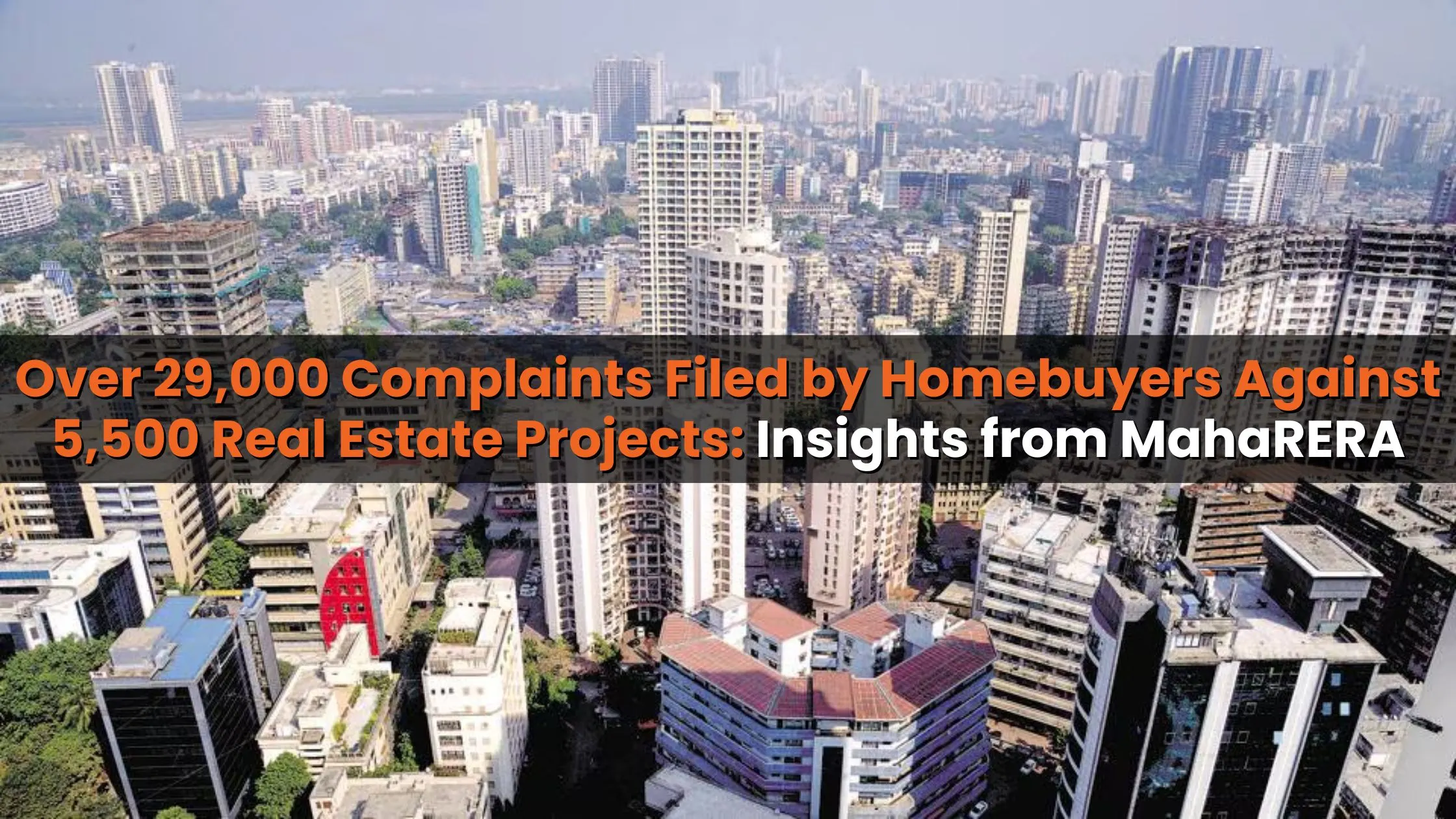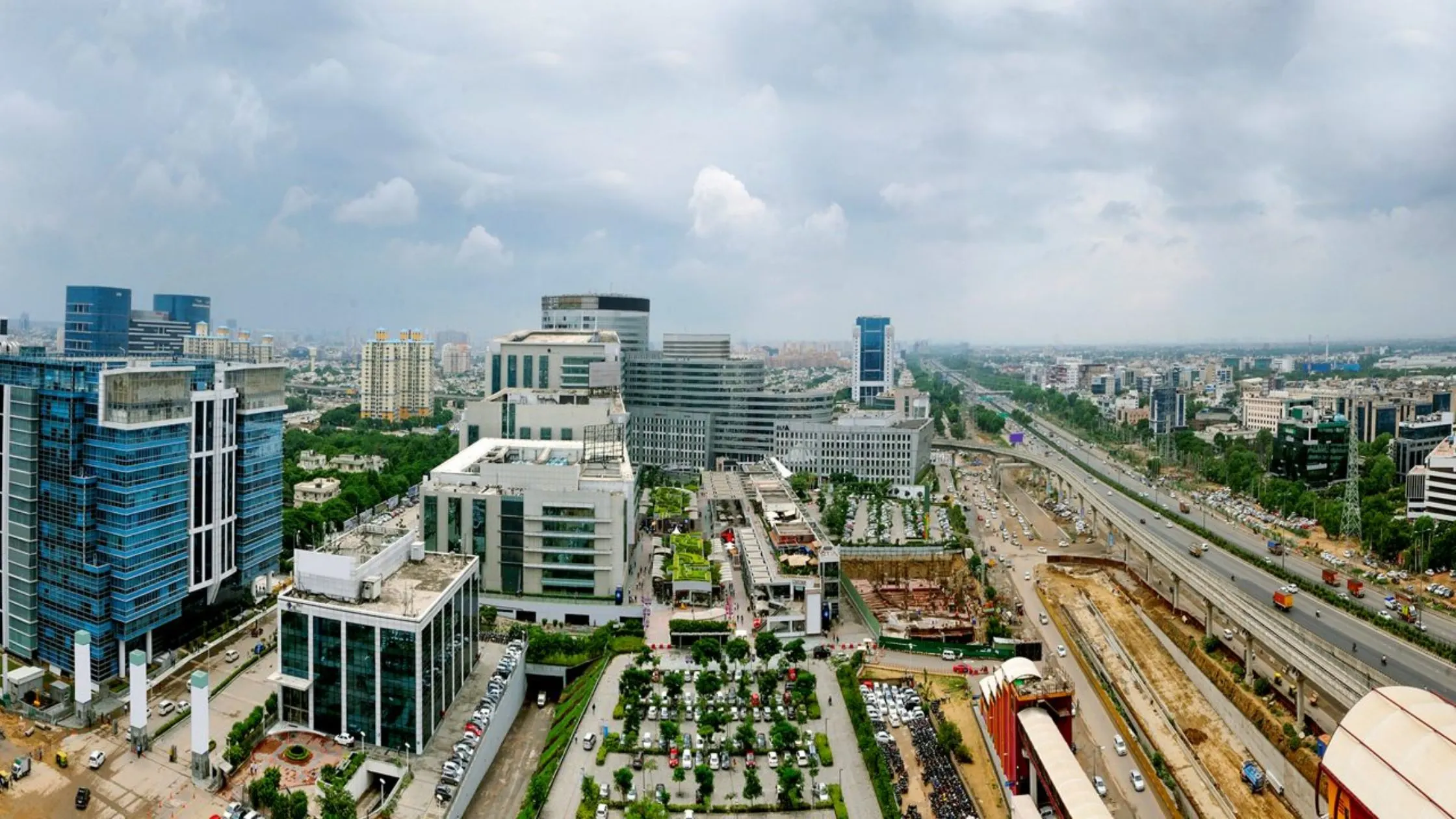Table of Content
▲
Maharashtra's real estate sector has witnessed tremendous growth over the years, with over 50,000 projects registered under the Maharashtra Real Estate Regulatory Authority (MahaRERA) since its establishment in 2017. However, the sector is not without its challenges. A staggering 29,000+ complaints filed by homebuyers against more than 5,500 projects highlight the pressing need for transparency and accountability. MahaRERA has emerged as a critical institution, addressing these concerns while striving to reshape the real estate landscape.
Understanding MahaRERA’s Role
Founded in May 2017 under the Real Estate (Regulation and Development) Act, 2016, MahaRERA was created to regulate the real estate industry, fostering transparency and holding developers accountable. With 50,131 registered projects, it leads the nation in regulatory coverage, accounting for over one-third of all real estate projects registered in India.
Also Read: Centre Issues Fresh Advisory to States on Smart Cities Mission
Key Achievements:
- Completed Projects: 17,280 projects have been successfully completed with all necessary documentation submitted.
- Lapsed Projects: Over 13,300 projects have been deemed lapsed due to non-compliance.
- Streamlined Operations: The authority offers user-friendly online platforms for project registration and grievance resolution.
Complaint Statistics: A Closer Look at MahaRERA Data
Volume and Distribution of Complaints
Homebuyers in Maharashtra have lodged 29,374 complaints against 5,508 real estate projects. These grievances can be categorized as follows:
- Pre-RERA Projects: 23,908 complaints (approximately 81% of total) pertain to projects initiated before MahaRERA's implementation.
- Post-RERA Projects: 5,466 complaints involve projects registered after the regulatory body came into effect.
Resolution Progress
MahaRERA has resolved 21,888 complaints so far, achieving a resolution rate of 74%. Steps taken include:
- Flexible Hearings: Both physical and online hearings are offered, with online options gaining popularity among NRIs and other stakeholders.
- Conciliation Efforts: 6,474 cases have been directed towards conciliation, with 2,006 cases (about 30%) resolved amicably.
The Impact of MahaRERA on Real Estate Practices
MahaRERA has significantly improved transparency and accountability in Maharashtra’s real estate sector. Key areas of impact include:
- Improved Transparency: Developers are now obligated to disclose essential project details, including timelines, approvals, and financial progress.
- Empowered Consumers: Homebuyers have a clear platform to address their grievances and seek resolution.
- Stronger Accountability: Developers face strict compliance requirements, with penalties for non-adherence, including project lapses and de-registration.
Persistent Challenges Highlighted by Complaints
Despite MahaRERA's commendable efforts, certain challenges remain:
- Legacy Issues: Many unresolved grievances stem from pre-RERA projects, highlighting regulatory gaps that existed prior to MahaRERA's establishment.
- Ongoing Delays: Even post-RERA projects occasionally face delays, suggesting a need for stricter enforcement mechanisms.
- Resistance to Change: Some developers have been slow to adapt to new compliance standards, prolonging dispute resolution timelines.
MahaRERA’s Proactive Measures
To address these challenges, MahaRERA has implemented several initiatives:
- Conciliation Mechanisms: Encouraging amicable resolutions to reduce the burden of litigation.
- Hybrid Hearing Options: Offering both online and in-person hearings to accommodate diverse preferences.
- Strict Compliance Enforcement: Developers who fail to meet obligations face penalties and project de-registration.
MahaRERA’s Standing in the National Context
MahaRERA’s leadership is evident in its numbers, with over 50,000 registered projects—significantly more than other states:
- Tamil Nadu: 27,609 registered projects.
- Gujarat: 15,322 registered projects.
This dominance underscores MahaRERA’s robust approach to regulation and consumer protection in real estate.
Also Read: Yeida Sets Land Rates for Agricultural Acquisition Near Noida Airport
Conclusion
The sheer volume of complaints filed with MahaRERA reflects growing consumer awareness and confidence in the regulatory framework. With a 74% resolution rate, MahaRERA has made considerable strides in addressing grievances and driving accountability within the sector. However, challenges such as pre-RERA backlogs and compliance issues in newer projects need continued attention.
To sustain progress, MahaRERA must strengthen enforcement, enhance transparency, and expand its conciliation mechanisms. By doing so, it can further establish Maharashtra as a benchmark for a transparent, accountable, and consumer-focused real estate environment.
Follow AquireAcers Whatsapp Channel to Stay Updated With The Latest Real Estate News






Ans 1. MahaRERA is the Maharashtra Real Estate Regulatory Authority, established in May 2017 under the Real Estate (Regulation and Development) Act, 2016. It was created to regulate the real estate industry, ensure transparency, and hold developers accountable in Maharashtra.
Ans 2. Since its inception, MahaRERA has registered over 50,000 real estate projects, leading the nation with more than one-third of all registered projects in India.
Ans 3. Homebuyers have filed 29,374 complaints against 5,508 projects. The grievances primarily include delays in project delivery, lack of transparency, and non-compliance with regulatory standards.
Ans 4. Approximately 81% of the complaints (23,908) involve projects initiated before MahaRERA was implemented, indicating the challenges associated with addressing legacy issues in the sector.
Ans 5. MahaRERA has resolved 21,888 complaints, achieving a resolution rate of 74%. It utilizes a combination of physical and online hearings, with the latter being particularly popular among non-resident Indians (NRIs) and other stakeholders.
Ans 6. Conciliation mechanisms are an essential part of MahaRERA’s efforts to resolve disputes amicably. Out of 6,474 cases referred for conciliation, 2,006 cases (30%) have been resolved through this approach.
Ans 7. Key achievements include: Successful completion of 17,280 projects with all necessary documentation. The establishment of user-friendly online platforms for project registration and grievance resolution. Holding developers accountable through compliance measures and penalties.
Ans 8. Despite its successes, MahaRERA faces challenges such as unresolved grievances from pre-RERA projects, delays in post-RERA project deliveries, and resistance from some developers in adapting to new compliance standards.